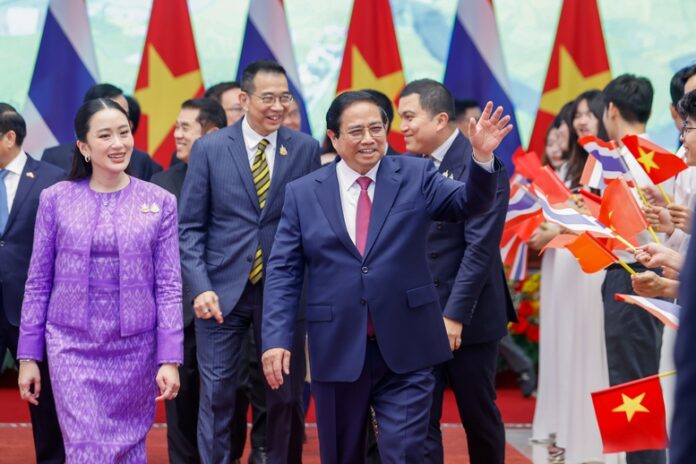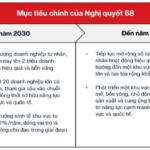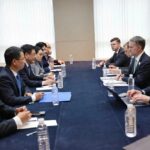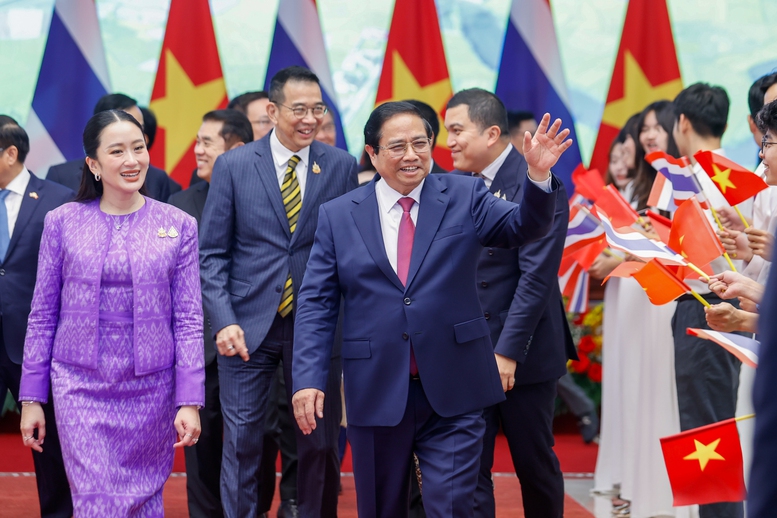
Prime Minister Pham Minh Chinh and Thai Prime Minister Paetongtarn Shinawatra before the press conference – Photo: VGP/Nhat Bac
Speaking at the press conference, Prime Minister Pham Minh Chinh once again expressed his delight in welcoming Thai Prime Minister Paetongtarn Shinawatra and the high-ranking delegation of the Royal Thai Government to Vietnam and co-chairing the 4th meeting of the joint cabinet between the two countries.
Thailand is one of the first countries in ASEAN to establish diplomatic relations with Vietnam after the country’s reunification. It is currently the only country with a joint cabinet meeting mechanism with Vietnam, proposed by Thai Prime Minister Thaksin Shinawatra in 2004. Thailand was also one of the first countries in ASEAN to establish a Strategic Partnership with Vietnam in 2013, during the tenure of Thai Prime Minister Yingluck Shinawatra. Now, the two countries have upgraded their relations to a Comprehensive Strategic Partnership during Prime Minister Paetongtarn Shinawatra’s visit.
The continuous upgrading of bilateral relations over the years reflects the trust between the two countries, as well as their positions and roles in the region and the world.
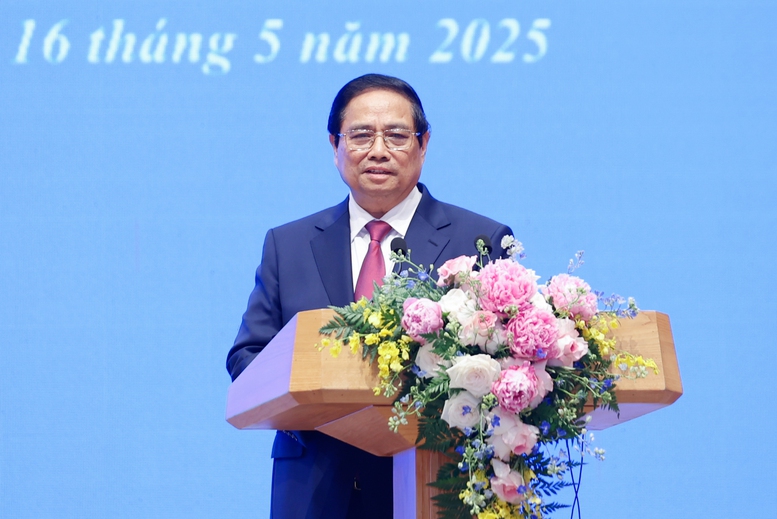
Prime Minister Pham Minh Chinh stated that the two countries upgraded their relations to a Comprehensive Strategic Partnership during Prime Minister Paetongtarn Shinawatra’s visit – Photo: VGP/Nhat Bac
Three main pillars in the Comprehensive Strategic Partnership
Prime Minister Pham Minh Chinh stated that, in a spirit of sincerity, trust, respect, mutual understanding, and shared vision for the future, the two sides successfully co-chaired the 4th joint cabinet meeting and agreed on many important strategic orientations. The most outstanding result is the official upgrade of bilateral relations to a Comprehensive Strategic Partnership.
With very comprehensive and extensive cooperation content, bearing profound humanitarian values, the upgrade of relations between the two countries is of great significance, contributing to creating a peaceful, stable, secure, cooperative, and developing environment in the ASEAN region, Asia-Pacific, and the world. It also promotes the rapid and sustainable socio-economic development of the two countries and brings happiness and prosperity to their people.
“This is not just a political statement or a symbolic milestone, but also a strategic commitment, affirming a new breakthrough in the substance and depth of cooperation, reflecting the far-sighted, comprehensive, and ambitious vision of the leaders of the two countries,” emphasized the head of the Vietnamese Government.
Based on this, the two sides agreed to urgently develop an Action Program to implement the Vietnam-Thailand Comprehensive Strategic Partnership for the period of 2025-2030, based on three main pillars.
First, Partnership for Sustainable Peace: The two sides agreed to further deepen political, defense, and security cooperation to maintain a peaceful, secure, and stable environment in the two countries and the region. Accordingly, the two sides will enhance high-level contacts and cooperation mechanisms between the two countries, especially the joint cabinet meeting mechanism and the Vietnam-Thailand Joint Committee on Bilateral Cooperation. They will also promote high-level visits and coordinate to organize annual meetings between the two Prime Ministers, both in bilateral and multilateral frameworks. In addition, they will consider upgrading policy dialogue mechanisms on defense and high-level dialogue on crime prevention and security issues to the ministerial level.
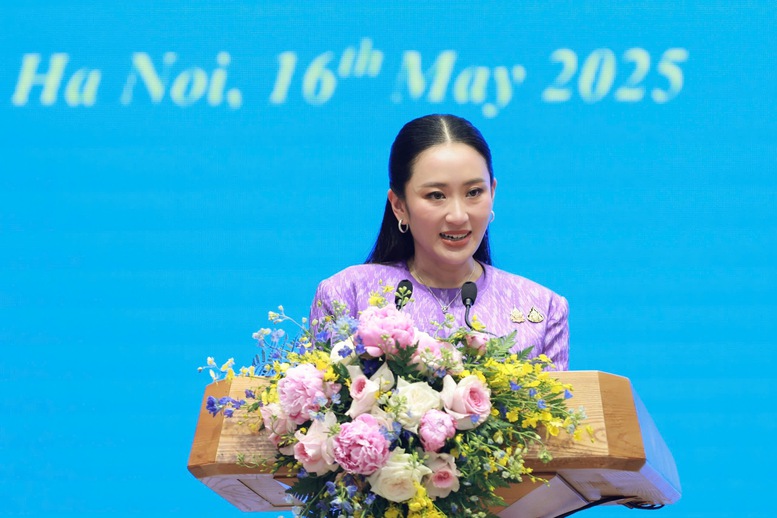
Prime Minister Paetongtarn Shinawatra stated that the two sides exchanged views comprehensively on many issues in a friendly atmosphere – Photo: VGP/Nhat Bac
The two sides agreed to promote and expand cooperation in maritime security, defense industry, logistics, military medicine, search and rescue, border management, and exchanges between armed forces and military arms. They committed to enhancing cooperation in preventing and combating transnational crimes, especially drug trafficking, human trafficking, and cybercrime. They also reaffirmed their commitment to not allowing any individual or organization to use their territory to harm the other’s security and interests.
Second, Partnership for Sustainable Development: The two sides agreed to promote the connectivity of the two economies within the framework of the 3 Connectivity Strategy, including supply chain connectivity, business and local connectivity, and connectivity in sustainable growth strategies, green growth, and digital economy between the two countries.
Accordingly, the two sides agreed on the following five enhancements:
1. Enhance trade facilitation for each other’s exports and strive for a trade value of 25 billion USD in the near future, in a balanced and sustainable manner.
2. Facilitate market access and investment expansion for businesses in each country, especially in potential fields such as clean energy, digital economy, green economy, innovation, and high-tech agriculture.
3. Strengthen infrastructure connectivity in transportation and logistics, especially the East-West Economic Corridor, to facilitate the movement of goods, services, and people between the two countries and within the region.
4. Enhance cooperation in science and technology applications, innovation, and digital transformation and green transition in various fields, towards a low-carbon economy and net-zero emissions.
5. Strengthen cooperation in labor, employment, and social welfare, promoting the implementation of the agreement on the recruitment of Vietnamese workers to work in Thailand.
Third, Partnership for Sustainable Future: “We consider investment in young generations, education, people-to-people exchanges, and cultural cooperation as investment in a sustainable future for the two countries and nations,” emphasized Prime Minister Pham Minh Chinh.
In that spirit, the two sides agreed to strongly promote people-to-people exchanges, especially between the youth of the two countries, enhance cooperation between educational institutions, student exchanges, and scholarships. They will also expand Vietnamese and Thai language centers in each country and maximize the framework of twinned localities. They will encourage the opening of more direct flights between localities of the two countries and promote the realization of the tourism connectivity initiative “6 countries-1 destination.”
The two sides committed to creating favorable conditions for their citizens to live, work, and study in each other’s countries, including the community of Vietnamese people living, working, and studying in Thailand. “This is a valuable bridge in the relationship between the two countries and an indispensable part of our efforts to preserve and develop the friendship and closeness between our peoples,” said Prime Minister Pham Minh Chinh.
“With the upgrade to a Comprehensive Strategic Partnership, Vietnam-Thailand relations have become a strong current in the great river of the ASEAN region,” said the Prime Minister, expressing his belief that with the foundation of friendship, common vision, and strategic trust, Vietnam-Thailand relations will continue to prosper and spread positive values – not only for the benefit of the two peoples but also for a peaceful, stable, cooperative, and sustainably developing Southeast Asia.
Prime Minister Pham Minh Chinh emphasized that this visit is of great importance, comprehensive, and successful, reflecting the sentiments between the two countries, inheriting fine traditions, and aspiring to build a peaceful, cooperative, and developing Southeast Asia, a center of growth, with happier and more prosperous people, contributing to peace, stability, comprehensive and inclusive development in the world.
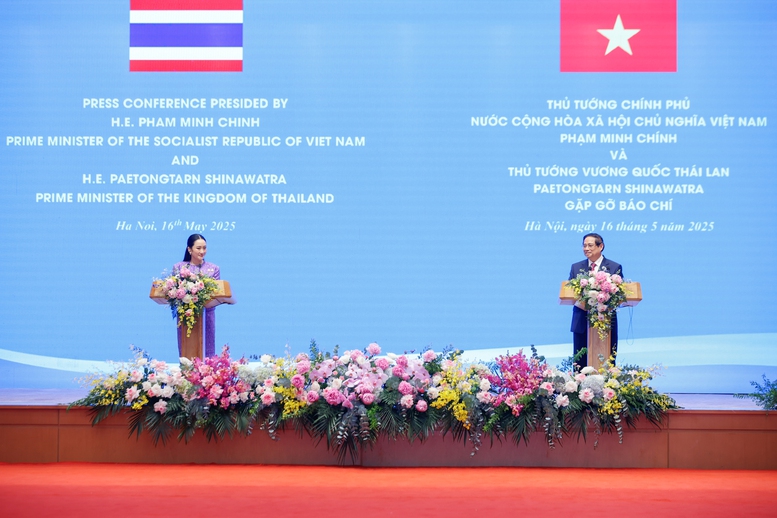
The two Prime Ministers stated that the two sides also agreed to enhance coordination and exchange views on regional and international issues of mutual interest – Photo: VGP/Nhat Bac
A New Era in Bilateral Relations
For her part, Thai Prime Minister Paetongtarn Shinawatra began her speech with the Vietnamese greeting “xin chào”; she then expressed her sincere appreciation for the warm and cordial welcome from the Vietnamese side and was particularly touched by Prime Minister Pham Minh Chinh’s repeated mentions of the Shinawatra family members.
Honored to make her first official visit to Vietnam, Prime Minister Paetongtarn Shinawatra assessed that the joint cabinet meeting mechanism between the two countries is very special and unique to Vietnam and Thailand. During this visit, the two countries upgraded their bilateral relations to a Comprehensive Strategic Partnership, reflecting the importance that the two countries attach to each other and opening a new era in bilateral relations in the context of global instability.
Prime Minister Paetongtarn Shinawatra stated that the two sides exchanged views comprehensively on many issues in a friendly atmosphere. In addition to the contents mentioned by Prime Minister Pham Minh Chinh, Prime Minister Paetongtarn Shinawatra added that the two sides agreed to increase high-level visits and consultations regularly. The Thai Prime Minister invited Prime Minister Pham Minh Chinh to attend the Mekong-Lancang Cooperation Summit later this year, and the two sides will promote high-level visits on the occasion of the 50th anniversary of the establishment of diplomatic relations between the two countries next year.
The two sides also agreed to enhance cooperation between their armed forces and security agencies. Prime Minister Paetongtarn Shinawatra welcomed the substantive cooperation between the two countries in preventing the transportation of drug precursors across the border and dismantling drug trafficking rings. They also agreed to enhance information sharing to dismantle networks related to online fraud.
The two sides agreed to promote economic connectivity to take advantage of each other’s strengths through complementary value chains to bring maximum benefits. They also agreed to promote economic cooperation in the Mekong sub-region and ASEAN. The two countries will soon develop a connectivity strategy based on three pillars: supply chain, local economy, and green economy.
Prime Minister Paetongtarn Shinawatra suggested that the two trade ministers should soon organize a Joint Committee to facilitate trade, especially in agricultural and livestock products. On this occasion, the Thai Prime Minister thanked Vietnam for facilitating the transportation of goods to third countries and always creating favorable conditions for Thai businesses to invest in Vietnam. Thailand is ready to welcome more Vietnamese businesses to invest in the country.
The two sides also agreed to strongly promote transport connectivity by air, road, and water. Prime Minister Paetongtarn Shinawatra welcomed the upcoming direct flight between Vietnam and Northeast Thailand, the first international flight to Northeast Thailand, which is being developed as a new logistics center. Along with that, the two countries will enhance road connectivity between Thailand-Laos-Vietnam and waterway connectivity between Thailand-Cambodia-Vietnam.
The two countries will also cooperate closely in the digital economy and facilitate cross-border payments to support rapidly growing businesses.
The two sides agreed to promote tourism between Northeast Thailand and Vietnam, taking advantage of the upcoming direct flight and convenient road connectivity. They will also promote cruise tourism between Vietnam, Thailand, and Singapore.
In terms of human resource development cooperation, Prime Minister Paetongtarn Shinawatra emphasized the fields of STEAM and modern industries such as AI and semiconductors. She welcomed the cooperation between Khon Kaen University and FPT University in training human resources in the semiconductor industry and encouraged more of such cooperation models.
The two Prime Ministers stated that the two sides also agreed to enhance coordination and exchange views on regional and international issues of mutual interest, underlining the importance of maintaining ASEAN solidarity, unity, and centrality, promoting a self-reliant and resilient ASEAN, and maintaining peace, stability, security, safety, and freedom of navigation in the South China Sea based on international law, especially UNCLOS 1982, and promoting the early conclusion of an effective and substantive COC in accordance with international law.
The Vice-Minister’s Directive: No Auction for Laos Cai’s Mineral Mine Licenses
“Vice Prime Minister Tran Hong Ha has recently signed a decision to add several mineral mines in Lao Cai province to the list of areas exempt from mineral exploitation right auctions, which fall under the authority of the Ministry of Agriculture and Environment to license.”
“How Did Pham Van Cach, Chairman of Son Lam Company, Bribe 71 Billion VND to Get His Drugs into Hospitals?”
“Bribery and corruption are prevalent issues in many societies, and Vietnam is no exception. In a recent scandal, Mr. Pham Van Cach was implicated in a bribery scheme, where he allegedly paid over VND 71 billion in bribes to facilitate the supply of medicines without hindrance. This shocking revelation has once again brought to light the deep-rooted corruption that plagues the nation and the lengths that some individuals will go to in order to achieve their nefarious goals.”
Unleashing Vietnam’s Private Sector: Vinacapital Expert Weighs in on Resolution 68
“The core vision of Resolution 68, according to the director of VinaCapital, is to foster a dynamic, robust, high-quality private economic sector with a global competitive edge. This resolution aims to empower private enterprises to become key drivers of Vietnam’s economic growth and transformation.”
Unveiling the Secrets Behind Over 500 Livestream Sessions of Vietnamese Products, Reaching 77,000 Orders and 1.2 Million Views
The power of live streaming has revolutionized the way Vietnamese agricultural products and goods are marketed, creating a powerful platform to build a strong national brand and foster sustainable economic growth.

